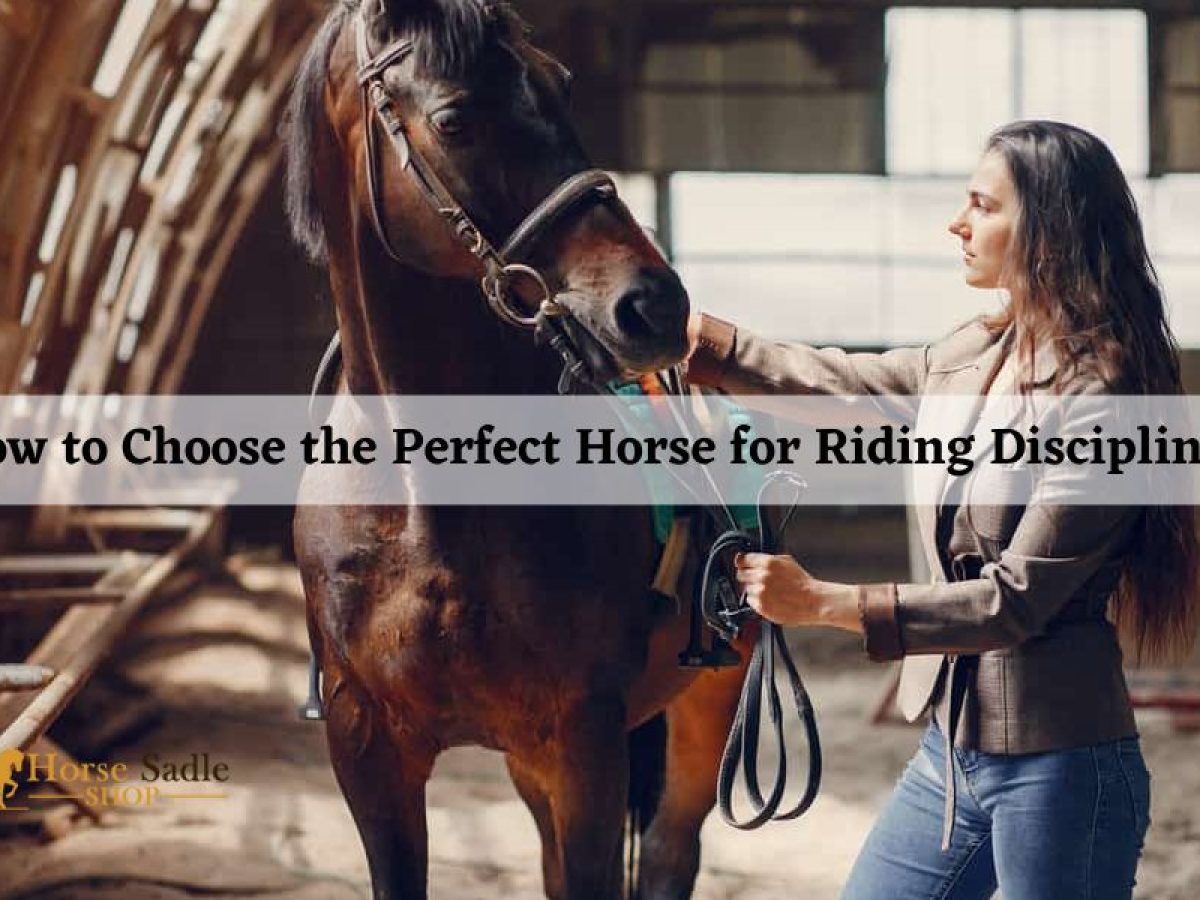Looking for the perfect horse to suit your riding style? Look no further! In this article, we will explore the ins and outs of finding a horse that is not only compatible with your preferred riding style but also matches your skill level and experience. Whether you’re a beginner looking for a steady mount or an experienced rider in search of a challenge, we’ve got you covered. So sit back, relax, and let us help you find your equine match made in heaven.
Factors to Consider
When searching for the perfect horse, there are several important factors that you should take into consideration. These factors will help you find a horse that is compatible with your riding style, meets your long-term goals, and fits within your budget. By carefully considering these factors, you can ensure that you find a horse that is not only enjoyable to ride but also suits your needs and preferences.
Riding Experience
One of the first factors to consider when looking for a horse is your riding experience. Are you a beginner, intermediate, or advanced rider? This will determine the level of horse that you should consider. For beginners, a calm and well-trained horse is often the best choice, while more advanced riders may be able to handle horses with higher energy levels or more complex training.
Riding Discipline
Next, think about your riding discipline. Do you primarily ride for pleasure, participate in competitions, or focus on a specific riding discipline such as dressage, show jumping, or trail riding? Different disciplines require different types of horses, so it’s important to find a horse that is suited to your chosen discipline.
Horse’s Temperament
The temperament of the horse is another crucial factor to consider. Some horses have calm and docile temperaments, making them suitable for novice riders or those who prefer a more relaxed riding style. On the other hand, there are horses with energetic and lively temperaments that may be better suited to experienced riders or those who enjoy a more active and dynamic ride.
Horse’s Size and Breed
The size and breed of the horse should also be taken into account. Consider your own size and weight, as well as the horse’s build and conformation. A larger rider may require a larger, sturdier horse, while a smaller rider may be better suited to a smaller or more agile horse. Additionally, certain breeds may have specific characteristics that make them more suitable for certain riding styles or disciplines.
Horse’s Age
The age of the horse is another important factor to consider. Young and green horses may require more training and experience to handle, while mature and experienced horses may be more reliable and predictable. Additionally, there are retired or semi-retired horses that may be a good fit for riders looking for a more leisurely or low-impact riding experience.
Horse’s Training Level
Another factor to consider is the horse’s training level. Are you looking for a horse that is already well-trained and seasoned, or are you comfortable working with a horse that is green or partially trained? Your own level of horsemanship and the amount of time and effort you are willing to invest in training will determine the training level that is suitable for you.
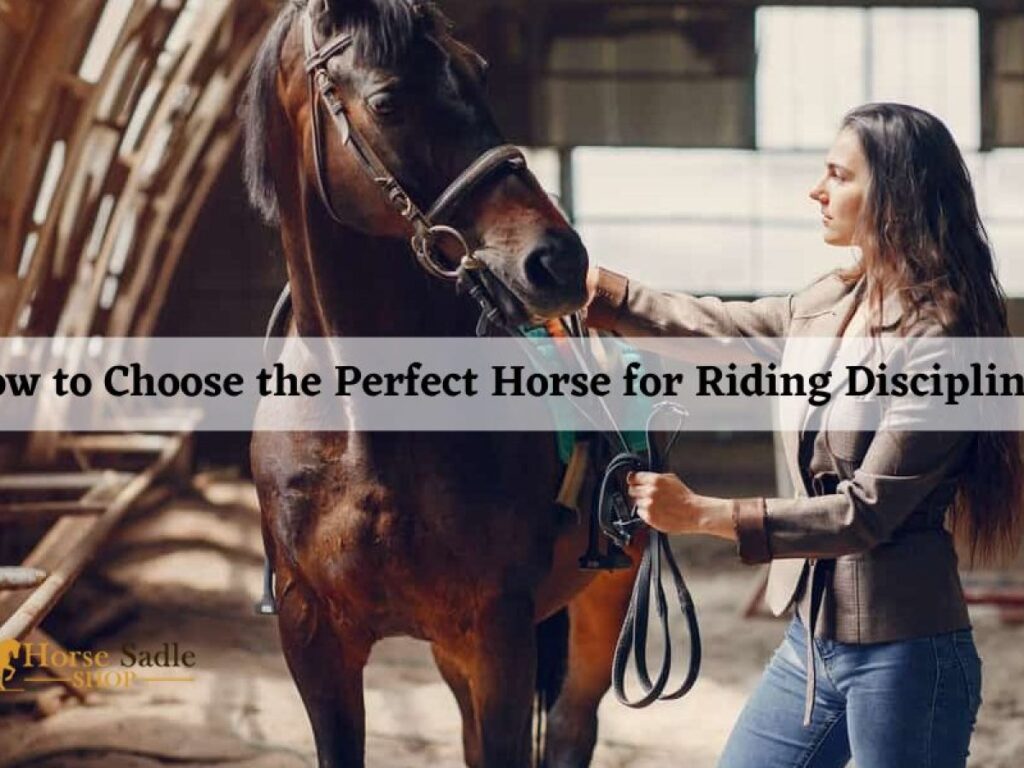
Budget
Your budget is an important factor to consider when looking for a horse. Consider not only the initial purchase price of the horse but also ongoing care and maintenance costs, training and lessons expenses, and any other potential expenses that may arise. It’s important to find a horse that not only fits within your budget initially but also in the long run.
Health Considerations
The health of the horse is a crucial aspect to consider. Regular veterinary check-ups and any potential health issues that are common in certain breeds should be taken into account. Additionally, consider the feeding and nutrition requirements of the horse, as well as their exercise and turnout needs. Taking proper care of the horse’s health is essential for their well-being and your enjoyment of horseback riding.
Availability
The availability of horses in your local area should also be considered. Research the local horse market and connect with horse trainers and breeders who may have suitable horses for sale or lease. Additionally, consider horse adoption as a potential option. Online horse listings can also be a valuable resource for finding available horses. The more options you have, the higher the likelihood of finding the perfect match for your riding style and preferences.
Long-term Goals
Lastly, consider your long-term riding goals. Do you plan on riding primarily for recreational purposes, or do you have aspirations for competitive riding, trail riding, breeding, or showing? Matching your horse to your long-term goals will ensure that you have a horse that is well-suited for your desired riding outcomes and can support your future training and growth.
Researching Horse Breeds
Once you have considered the various factors mentioned above, it’s time to dive into researching horse breeds. Understanding different breeds, their characteristics, health issues, training needs, and popularity can help you narrow down your choices and find a breed that aligns with your preferences and requirements.
Understanding Different Breeds
There are numerous horse breeds, each with its own characteristics and purposes. Some breeds are known for their athleticism and agility, while others are prized for their gentle temperament or suitability for specific riding disciplines. Researching and familiarizing yourself with the different breeds will give you a clearer idea of the options available to you.
Assessing Breed Characteristics
When researching horse breeds, it’s essential to assess their characteristics. Does the breed generally have a calm temperament, high energy levels, or a predisposition for certain types of work? Understanding breed characteristics can give you an idea of what to expect when it comes to the horse’s behavior, activity level, and training needs.
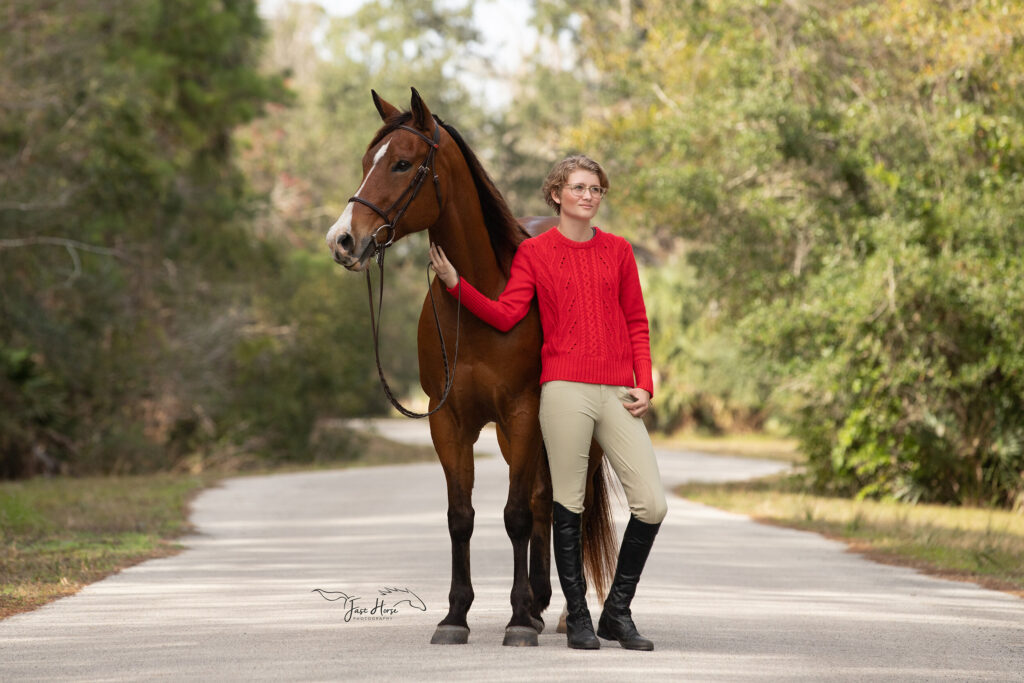
Researching Breed-Specific Health Issues
Certain horse breeds are more prone to specific health issues. By researching breed-specific health issues, you can be better prepared to handle any potential health challenges that may arise. This knowledge will also help you choose a breed that is less likely to have health issues that could impact the horse’s well-being or your riding experience.
Exploring Breed-Specific Training Needs
Different breeds may have varying training needs and requirements. Some breeds may be more responsive and easier to train, while others may require a more experienced and patient approach. Understanding the training needs of different breeds can help you choose a breed that aligns with your own horsemanship skills and training preferences.
Considering Breed Popularity
Breed popularity can be an important consideration when choosing a horse. Popular breeds often have a larger presence in the horse industry, which can offer advantages such as a wider range of training resources, competitions, and opportunities for buying or selling horses. On the other hand, less popular breeds may offer a unique and distinctive riding experience.
Matching Riding Style with Horse’s Temperament
After narrowing down your options based on factors such as riding experience and breed characteristics, it’s important to match your riding style with the horse’s temperament. The temperament of the horse will greatly influence your riding experience and how well you connect with the horse.
Calm and Docile Temperaments
If you prefer a more relaxed and calm riding experience, horses with calm and docile temperaments are a great match. These horses are often patient, forgiving, and easy-going, making them suitable for beginner riders or those who simply enjoy leisurely trail rides or quiet hacks.
Energetic and Lively Temperaments
Some riders thrive on the energy and liveliness of a more spirited horse. These horses are often eager and enthusiastic, which can make for an exciting and dynamic ride. Riders who enjoy jumping, eventing, or competitive riding may find that horses with energetic and lively temperaments are the perfect match for their riding style.
Sensitive and Responsive Temperaments
For riders who value responsiveness and precision in their ride, horses with sensitive and responsive temperaments are ideal. These horses are highly attuned to the rider’s aids and can provide a level of connection and communication that is unmatched. Riders interested in disciplines such as dressage or precision riding may find that horses with such temperaments are a perfect fit.

Outgoing and Friendly Temperaments
If you enjoy spending time with your horse outside of riding and value a strong bond and connection, horses with outgoing and friendly temperaments are worth considering. These horses are often sociable, enjoy human interaction, and are known for their affectionate nature. Riders who want a horse that can be a companion both in and out of the saddle will appreciate horses with these temperaments.
Assertive and Dominant Temperaments
On the other end of the spectrum, there are horses with assertive and dominant temperaments. These horses often have strong personalities and require skilled handling and clear boundaries. Riders who are confident and assertive themselves may find that these types of horses can bring out the best in their riding. However, they may not be suitable for novice or less experienced riders.
Finding the Right Size Horse
Matching the size of the horse to the rider is crucial for riding comfort, balance, and safety. Both the rider’s size and weight, as well as the horse’s build and conformation, play a role in determining the right size horse.
Considering Rider’s Size and Weight
The rider’s size and weight should be taken into account when determining the right size horse. A larger rider will require a horse that can comfortably support their weight and provide an appropriate balance. Conversely, a smaller rider may be better suited to a smaller horse that allows for better control and balance.
Evaluating Horse’s Build and Conformation
The horse’s build and conformation also factor into finding the right size horse. A well-built horse with strong bone structure and good conformation will be better able to carry weight and withstand the demands of riding. Evaluate the horse’s body proportions, bone density, and overall physical condition to determine if it is the right size for you.
Understanding the Impact of Size on Performance
Size can also impact the horse’s performance in certain disciplines. In sports such as show jumping or dressage, smaller and more agile horses may have an advantage, while larger horses may excel in disciplines such as eventing or endurance riding. Consider your riding goals and the specific requirements of your chosen discipline when determining the ideal size for your horse.
Age of the Horse
The age of the horse is another important factor to consider when searching for the perfect match. The age of the horse can influence its suitability for your riding style, as well as the amount of training and experience it has.
Young and Green Horses
Young and green horses are typically horses under the age of five who are still in the early stages of training and may require additional time and experience to develop their skills. While these horses can offer potential and an opportunity for growth and development, they may not be suitable for beginner riders or those looking for a more reliable and experienced mount.
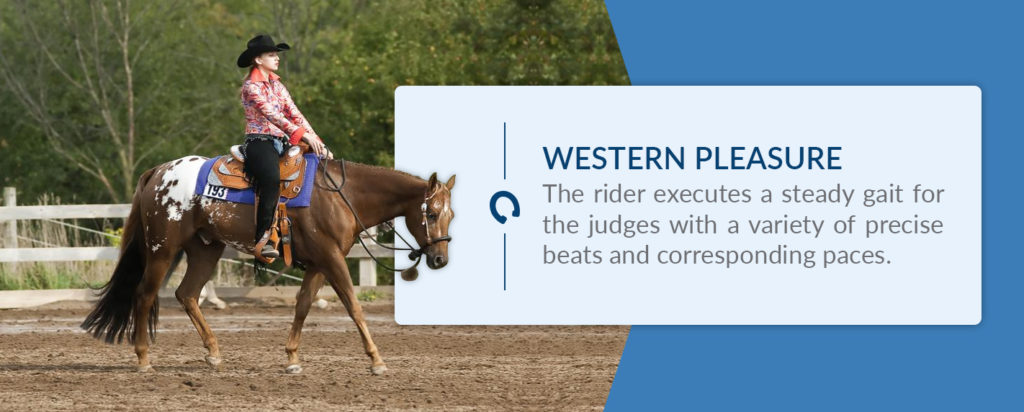
Mature and Experienced Horses
Mature and experienced horses are those that have had years of training and riding experience. These horses are often more reliable, predictable, and well-suited for a variety of riding styles and disciplines. If you prefer a horse that is already well-trained and seasoned, or if you are a beginner rider looking for a more trustworthy mount, mature and experienced horses are a great choice.
Retired or Semi-Retired Horses
There are also retired or semi-retired horses that may be a good fit for certain riders. These horses have already had a career in riding or competition and are now looking for a more leisurely lifestyle. Retired or semi-retired horses can offer a calm and relaxing riding experience, making them suitable for riders who prefer a more low-impact or recreational style of riding.
Assessing Training Level
The training level of the horse is another crucial factor to consider when searching for the perfect match. The horse’s training level will determine how well it responds to your aids, the complexity of maneuvers it can perform, and the overall riding experience it offers.
Green and Untrained Horses
Green and untrained horses are those that have had minimal to no formal training. These horses require a significant amount of time, effort, and expertise to develop into well-trained riding partners. While they can offer potential and growth opportunities, they may not be suitable for novice or less experienced riders who require a more reliable and trained mount.
Partially Trained Horses
Partially trained horses have had some level of training but may still require additional work and refinement. These horses may have some basic skills and maneuvers but may not yet be fully responsive or proficient in their training. For riders who enjoy participating in the training process and have the time and experience to continue training, partially trained horses can be a rewarding and fulfilling choice.
Well-Trained and Seasoned Horses
Well-trained and seasoned horses have had extensive training and often have years of riding experience. These horses are typically reliable, responsive, and capable of performing a wide range of maneuvers and exercises. If you prefer a horse that is already well-trained and can offer a more polished and refined riding experience, well-trained and seasoned horses are the top choice.
Setting a Budget
Establishing a budget is an essential step in the horse-buying process. Your budget will determine the price range of horses you can consider, as well as the ongoing care and maintenance costs that you will need to account for.
Purchase Price
The initial purchase price of the horse is the most obvious cost to consider when setting your budget. Remember that the price can vary greatly depending on factors such as the horse’s age, breed, training level, and overall quality. Determine the maximum amount you are willing to spend on the horse’s purchase price to help narrow down your options.
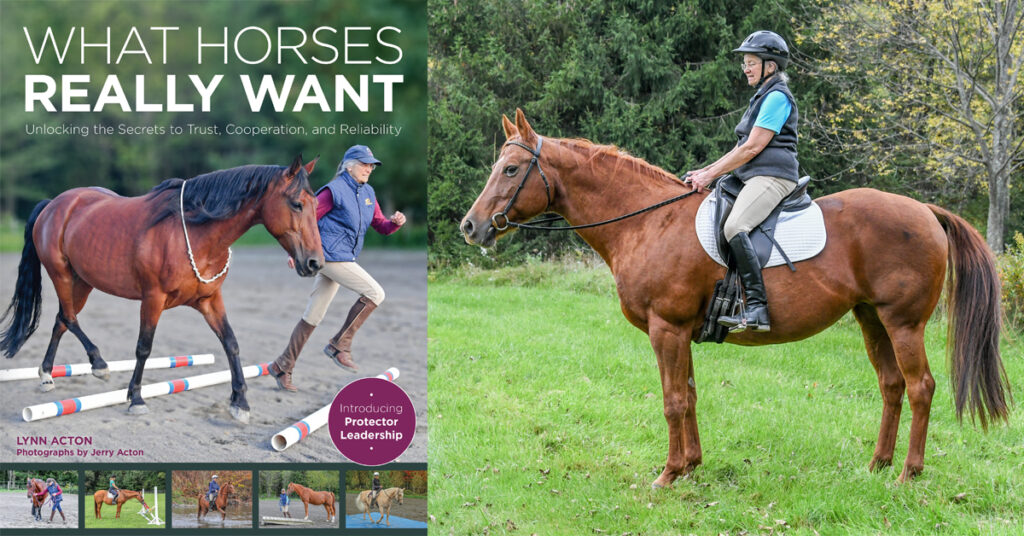
Ongoing Care and Maintenance Costs
In addition to the purchase price, there are ongoing care and maintenance costs that need to be factored into your budget. Consider expenses such as boarding or stabling fees, feed and bedding costs, farrier and veterinary fees, and any other regular or unexpected expenses that may arise. Be realistic about these costs to ensure that you can comfortably afford to own and care for the horse in the long term.
Training and Lessons Expenses
If you plan on further training the horse or taking lessons, it’s important to include these expenses in your budget. Training programs or professional lessons can help improve your riding skills and your relationship with the horse, but they also come with additional costs. Research the average rates for training and lessons in your area to get an idea of the financial commitment involved.
Other Potential Expenses
Finally, consider any other potential expenses that may arise throughout the horse’s ownership. This can include equipment and tack purchases, show or competition fees, transportation costs, and any unexpected veterinary or emergency expenses. By accounting for these potential expenses in your budget, you can avoid any financial surprises down the road.
Considerations for Health and Care
The health and care of the horse are of paramount importance when searching for the perfect companion. By considering the horse’s health needs, you can ensure that you are able to provide the necessary care and support for their overall well-being.
Veterinary Check-ups and Costs
Regular veterinary check-ups are essential for maintaining the horse’s health. Consider the costs associated with routine vaccinations, dental care, deworming, and any other veterinary services that may be required. It’s important to allocate a portion of your budget for these ongoing healthcare expenses to provide the best care for your horse.
Feeding and Nutrition Requirements
Understanding the feeding and nutrition requirements of the horse is another crucial aspect of their care. Different horses have different dietary needs and preferences, so it’s important to research the appropriate type and amount of feed, as well as any necessary supplements. Proper nutrition is key to keeping the horse healthy and maintaining their overall condition.
Exercise and Turnout Needs
Horses are active animals that require daily exercise and turnout to maintain their physical and mental well-being. Consider the amount of time and space you are able to dedicate to providing the horse with regular exercise and turnout. This may include access to pasture or a suitable turnout area, as well as the time and energy you can commit to riding and training.
Potential Health Issues for Certain Breeds
Certain horse breeds are more prone to specific health issues or conditions. Research the breed-specific health concerns and consider if you are comfortable managing those potential issues. By understanding the potential health risks associated with certain breeds, you can make an informed decision and provide appropriate care for your horse.
Availability of Horses
The availability of horses plays a significant role in your search for the perfect match. Consider the options and opportunities in your local horse market, as well as alternative channels for finding suitable horses.
Local Horse Market
Research the local horse market in your area to get an idea of the available horses for sale or lease. Local horse trainers, breeders, and equestrian facilities may have horses that are currently on the market or can provide valuable recommendations and connections within the community. Attend horse shows, events, or auctions to see horses firsthand and connect with potential sellers.
Working with Horse Trainers and Breeders
Horse trainers and breeders are valuable resources when it comes to finding the right horse. They often have knowledge of available horses that may not be actively marketed, as well as insights into the quality, temperament, and training level of these horses. Establish good relationships with reputable horse trainers and breeders to increase your chances of finding the perfect match.
Considering Horse Adoption
Horse adoption can be a wonderful option for finding a horse in need of a loving home. There are various horse rescue organizations and adoption agencies that specialize in finding suitable homes for horses in need. Adopting a horse not only provides a second chance for the horse but also allows you to make a positive impact on their life.
Online Horse Listings
The internet provides a vast array of online horse listings that can be a valuable resource in your search. Websites dedicated to horse sales and classifieds allow you to filter your search based on criteria such as breed, age, temperament, and location. While online listings can be convenient, always exercise caution and thoroughly vet any potential sellers before making a purchase.
Aligning with Long-Term Riding Goals
To ensure a successful partnership between you and your horse, it’s important to align your selection with your long-term riding goals. Consider your aspirations, riding style, and future training and growth plans when making your final decision.
Recreational Riding
If your primary goal is recreational riding for enjoyment and relaxation, focus on finding a horse that matches your preferred style and temperament. Look for a horse that is well-suited for leisurely trail rides, hacks, or casual arena work. The emphasis should be on a horse that is safe, reliable, and enjoyable to ride.
Competitive Riding
If you have aspirations for competitive riding, choose a horse that is suited to your chosen discipline or disciplines. Consider the specific requirements and attributes necessary for success in your discipline. Whether it’s show jumping, dressage, eventing, or any other competitive discipline, find a horse with the right temperament, training, and physical capabilities to excel.
Trail Riding
For riders who enjoy exploring the great outdoors, trail riding is a popular and rewarding choice. Look for a horse that is comfortable and confident in different terrains, handles unexpected situations with ease, and has a calm and steady temperament. Consider the size and build of the horse to ensure that it can handle the physical demands of trail riding.
Breeding or Showing Aspirations
If your long-term goals involve breeding or showing horses, choose a horse that has the appropriate conformation, bloodlines, and qualities necessary for success in the breeding or show ring. Research the specific requirements and standards for breeding or showing in your chosen breed or discipline to help guide your selection.
Future Training and Growth
Consider your future training and growth plans when choosing a horse. If you aspire to continue your own training journey and advance your horsemanship skills, a horse that has the potential for growth and development may be the right choice. Look for a horse that is eager to learn, resilient, and adaptable to different training techniques.
Conclusion
Finding the perfect horse for your riding style is a multifaceted process that involves careful consideration of various factors. From your riding experience to the horse’s temperament, size, age, training level, and budget, each factor plays a vital role in ensuring a successful and fulfilling partnership with your equine companion. By conducting thorough research, seeking expert advice, and aligning with your long-term goals, you can find the horse that perfectly matches your riding aspirations and brings joy to your equestrian journey.
